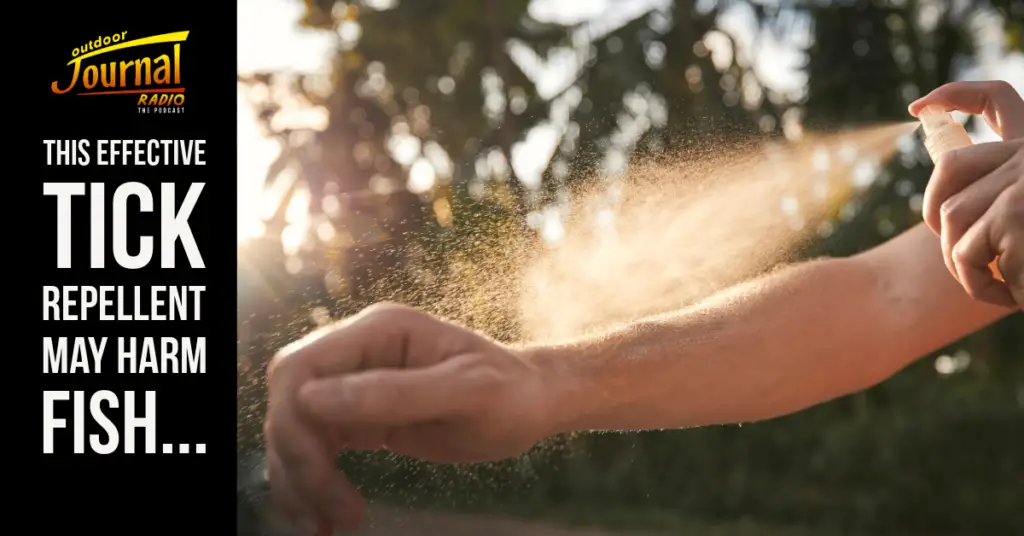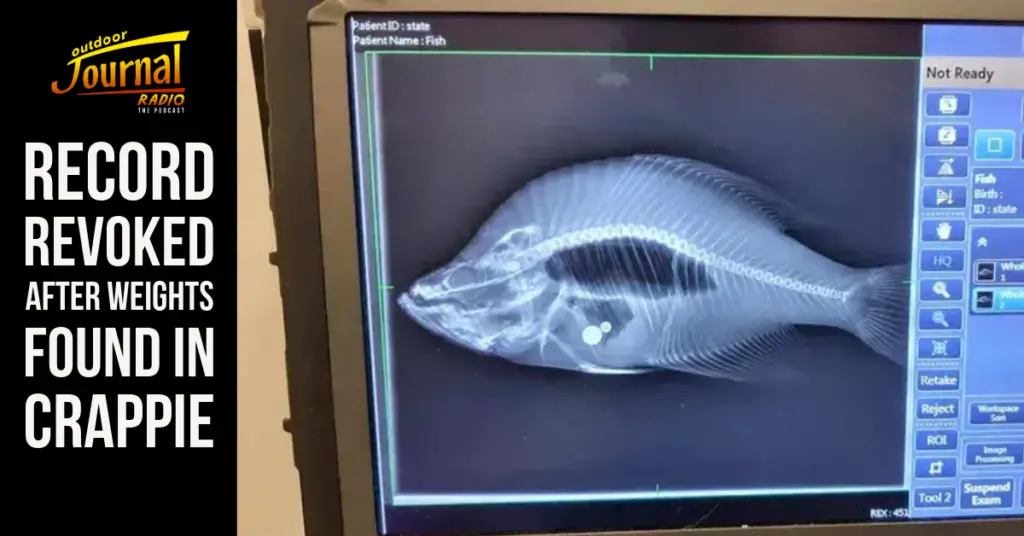As heard on Episode 114 of Outdoor Journal Radio
Long-time listeners of Outdoor Journal Radio will be well aware of our interest in the effective tick-repellent Permethrin as Deer Ticks, and Lyme Disease, continue their march north into our neck of the woods. The results of a recent study, however, gave Ang, Pete, and Dean a bit of pause on a recent episode.
The Study
According to a new study from Oregon State University, pyrethroid pesticides, at high concentrations, may have serious effects on exposed fish.
The study was carried out by Sara Hutton, a doctoral student, who placed inland silverside fish embryos in a tiny amount of the pesticide for just a few days. Courtney Flatt of the Northwest News Network put this into perspective, saying “the scientists exposed the fish to about the same concentration of pesticides as a teaspoon of them in an Olympic-sized pool.”
The embryos hatched into the solution for four days before being moved to clean water, where they grew.
The scientists found the fish and their offspring behaved strangely, like looking for too little or too much food. The adult male fish also had smaller reproductive organs and the adult had altered the number of eggs produced by female fish.
“It’s a bit of a red flag,” said Susanne Brander, the study’s co-author and an associate professor at OSU’s Hatfield Marine Science Center. “We should be looking into this because it could be contributing to population decline, potentially in lots of different fish species.”
Is Permetherin Dangerous for Humans?
In terms of what this means for humans, Brander warned that “fish have similar hormones as people, from estrogens to androgens to stress hormones.” For this reason, researchers often use fish that are similar to silversides as models for human health studies.
“I would be concerned about early-life exposure, in-utero exposure, if you’re spraying this around your home, or if you’re exposed due to working in agriculture,” Brander said.








